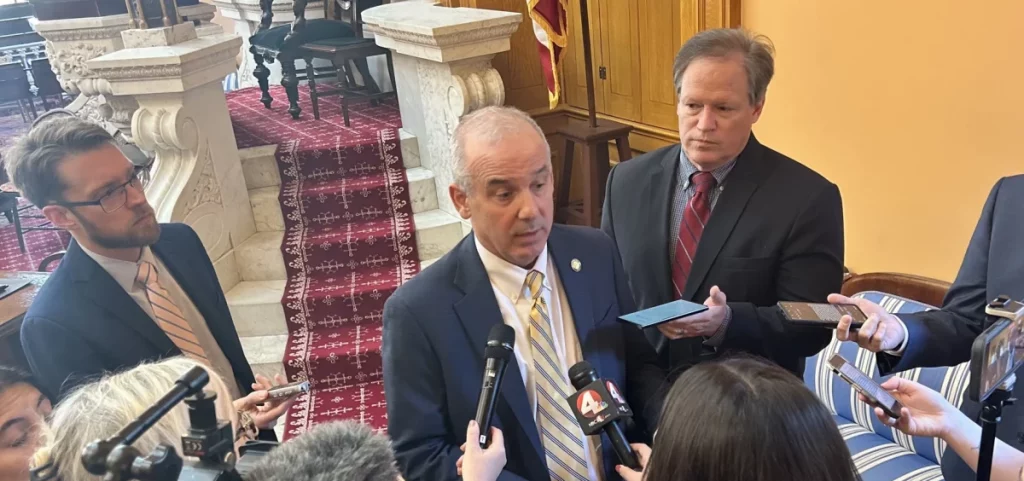News
What efforts are Ohio lawmakers making to determine what voters want when it comes to legal marijuana?
By: Jo Ingles | Statehouse News Bureau
Posted on:
COLUMBUS, Ohio (Statehouse News Bureau) — The Ohio legislature will go on holiday break without passing rules to implement the voter-approved statute that legalizes marijuana, which took effect Dec. 7. And there’s no guarantee when or if they’ll pass anything next year to change the language voters approved.
The new law voters passed to legalize marijuana can go in effect without intervention from lawmakers. But most legislators have said they’d like to make some changes, to clarify the law or change the tax structure of it. Gov. Mike DeWine has said alterations are necessary because he said the law made using and growing marijuana legal in Ohio, but selling it still is not legal.
The Senate passed changes to the law just hours before it took effect. Those include raising the tax rate to 15% and changing where the revenue goes, and allowing home grow of up to six plants per residence and sales to non-medical patients at existing medical marijuana dispensaries. That bill is now with the House, which has no plans to take it up before the end of the year.
“Somebody in the House needs to make a decision and I’m not sure how that’s happening right now,” said Senate President Matt Huffman (R-Lima), but added that he needs more information about what the House wants to see in the plan. “Unfortunately, as I’m standing here, I don’t know what the House wants, what they don’t like and what they do like.”
And Huffman added: “I don’t think the voters really meant only folks who have been convicted of a felony are allowed to get a license to sell marijuana. That was just a mistake in the language. And there were some other mistakes.”
In September, Ohio lawmakers held hearings on legislative redistricting maps in various areas of the state to get feedback from voters. And there have been times when lawmakers have had town halls or opportunities for voters to weigh in on other things. Huffman said he’s been receiving a lot of emails and phone calls. And he said he talks to people in his district all the time. He noted town halls wouldn’t exactly clarify the will of voters.
“The folks who show up at town halls, they don’t necessarily represent the 11 million people either,” Huffman said.

How House Speaker Jason Stephens sees the marijuana situation
House Speaker Jason Stephens (R-Kitts Hill) said Tuesday there are differences in the way members of his chamber view the bill versus the Senate’s plan.
“I think there’s a little a little bit of difference in, from whether it’s the local government or the state government should be the ones that handle the decision-making process with the tax revenue. I think that’s an important, important process,” Stephens said. “I’m obviously a local government kind of guy and I think that some of the some of the conversations, I think it’s fair to say that some of it kind of really, frankly, gets in the weeds, especially on the industry side as far as where licenses are and who gets licenses and and those kind of things.”
And while Gov. Mike DeWine has said there is an urgency to deal with this issue, Stephens said, “We can’t let the urgent get in the way of the in the way of the important…It’s just such a big change in Ohio’s law culture, you know, all of these things that we need to be deliberative about it and we want to be respectful.”
Stephens noted most of the provisions of the new initiated statute don’t go into effect until the summer of 2024.
Rep. Jamie Callender (R-Concord), the sponsor of marijuana legalization legislation in the House, has made some modifications to the plan passed by voters. But his bill leaves more of it intact than the Senate-passed proposal, and Callender has said he couldn’t vote for that bill. Callender said he feels the House has a pretty strong bargaining position right now and he’s comfortable with it.
“Look, for me personally, I’m not speaking on behalf of the House. This is just me. If negotiations fail and we don’t end up with something, I’m okay with just letting the initiated statute go into effect, which is a pretty strong bargaining position to be in,” Callender said.

